Tiki Torch Roundup: Guilty Pleas
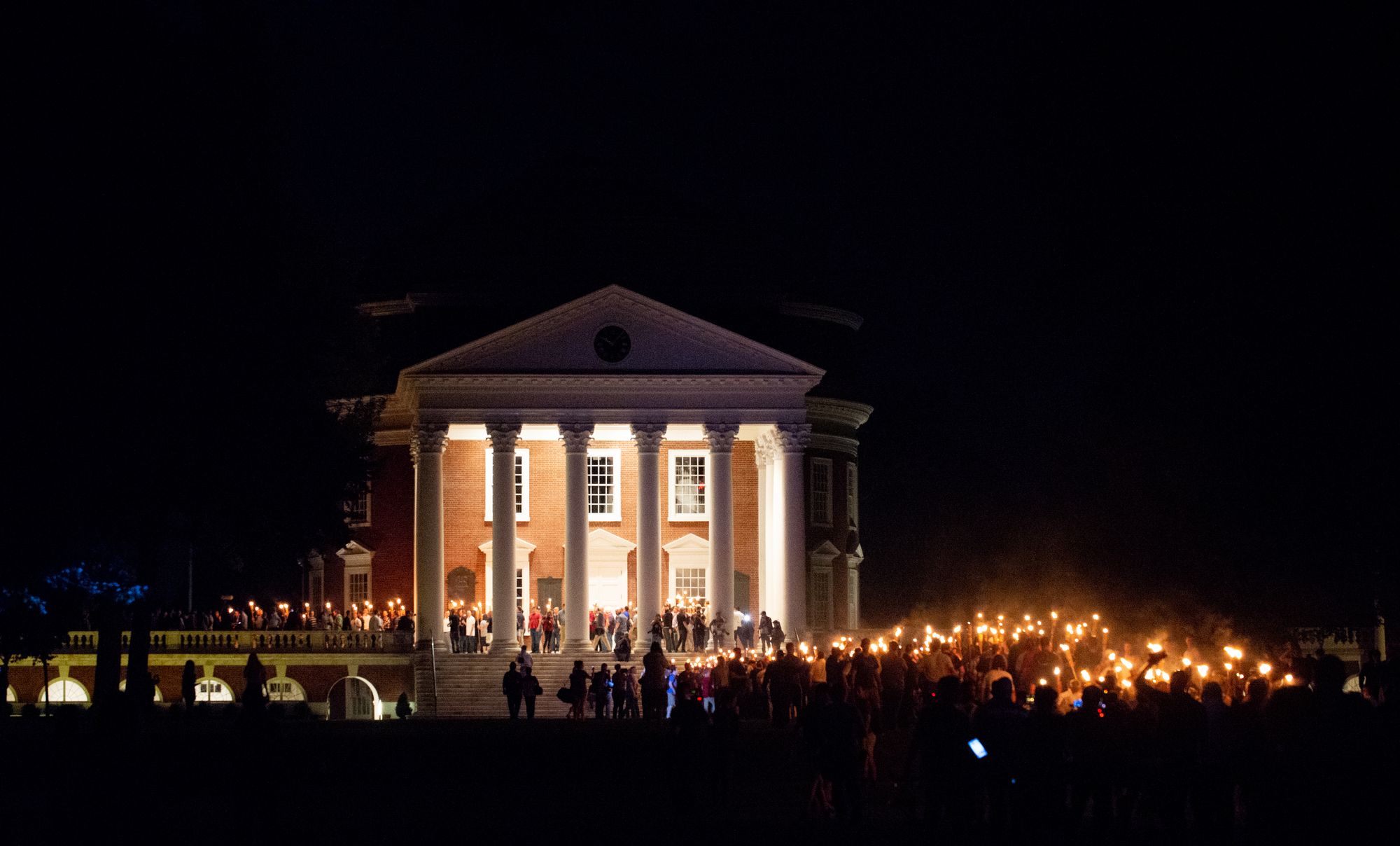
Since the news broke in April that the Albemarle County Commonwealth's Attorney's office was bringing felony charges against members of the torch wielding mob that marched at the University of Virginia on August 11, 2017, eight prosecutions have been initiated. Three men have pled guilty, two of whom have already completed their sentences. Two men have trial dates. One of those defendants awaits trial inside the Albemarle Charlottesville Regional Jail, the other is out on bond, practicing law. The remaining three defendants are out on bond with no set trial date. With so many cases underway, and the possibility of more on the horizon, it's time to check in on what's happened in the last few months and what to expect next, starting with the cases that have already resolved.
From August 11 to January 6

Tyler Dykes was arrested on St. Patrick's Day after a dog bite derailed his plans to drop a racist banner from a highway overpass. After two months in custody, Dykes entered into a plea agreement on May 25, accepting responsibility for the burning object charge in exchange for a sentence of 5 years with all but 6 months suspended. With credit for good behavior and the time he served before he was extradited, he would serve about four months behind bars with a release date of July 17. And he was released from the Albemarle Charlottesville Regional Jail on July 17, but instead of walking out a free man, he was transferred directly into federal custody.
Before Dykes entered his guilty plea on the charge of burning an object with the intent to intimidate, he was held without bond. In an April hearing, the Commonwealth proffered that Dykes was under investigation by other law enforcement agencies and that he was a suspect in an incident involving swastika stickers in Sumter County, SC. In that context, it appeared the "other law enforcement agencies" were probably local police departments in South Carolina and Georgia where Dykes was involved with the white supremacist group the Southern Sons Active Club. But when federal agents picked Dykes up at the end of his sentence, they weren't asking about stickers. They wanted to talk about January 6, 2021.
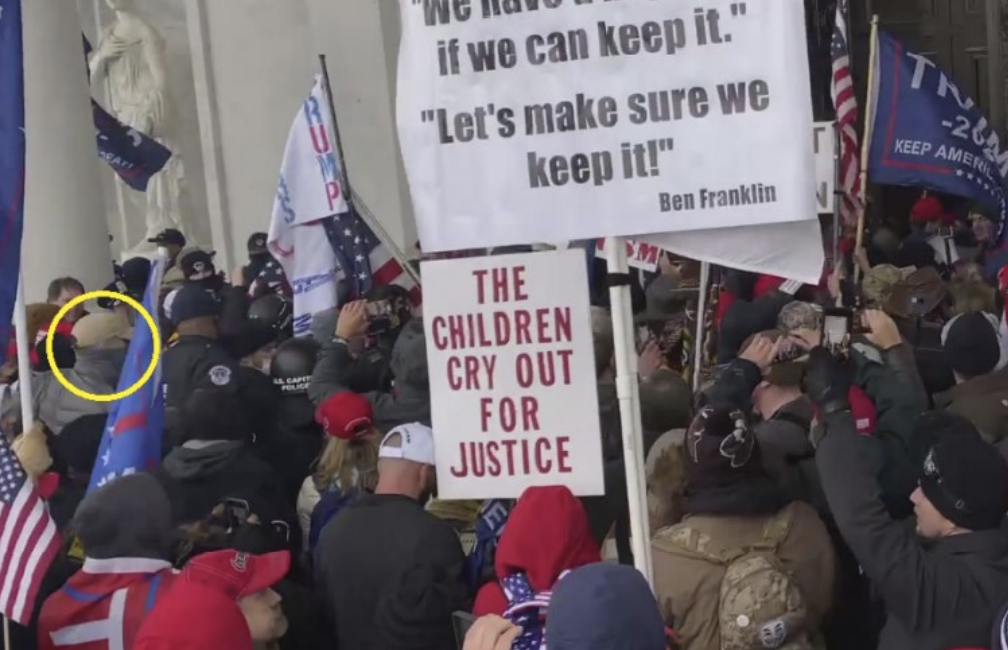
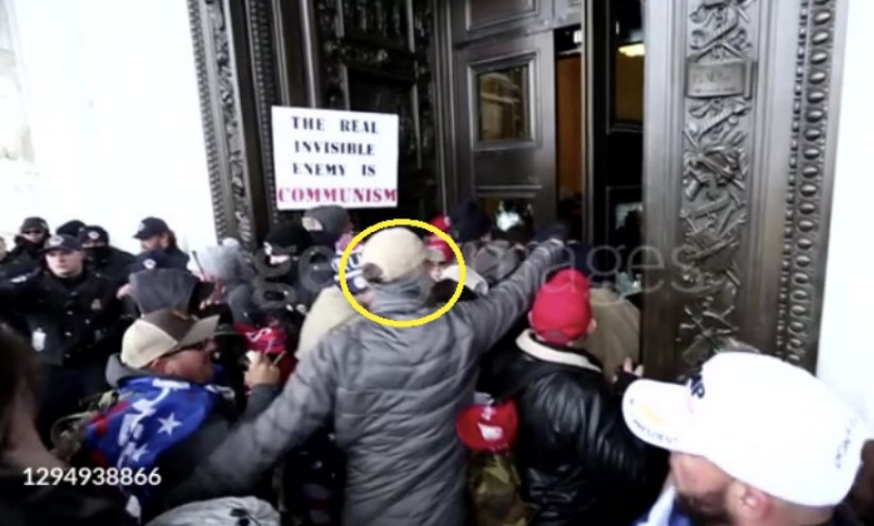
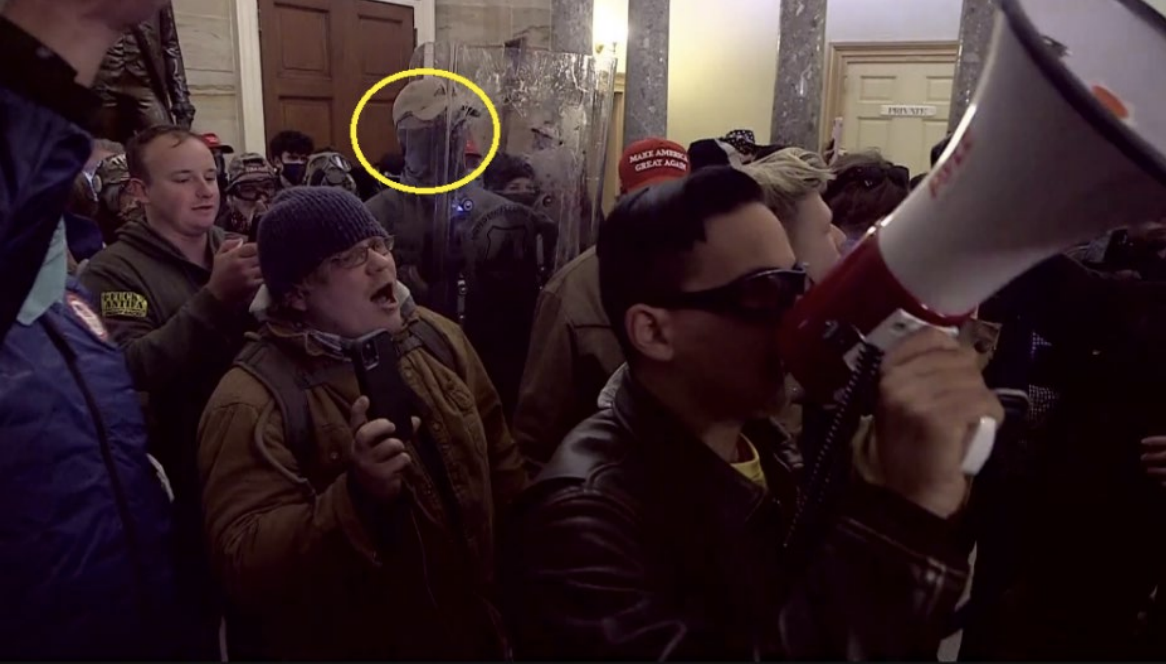
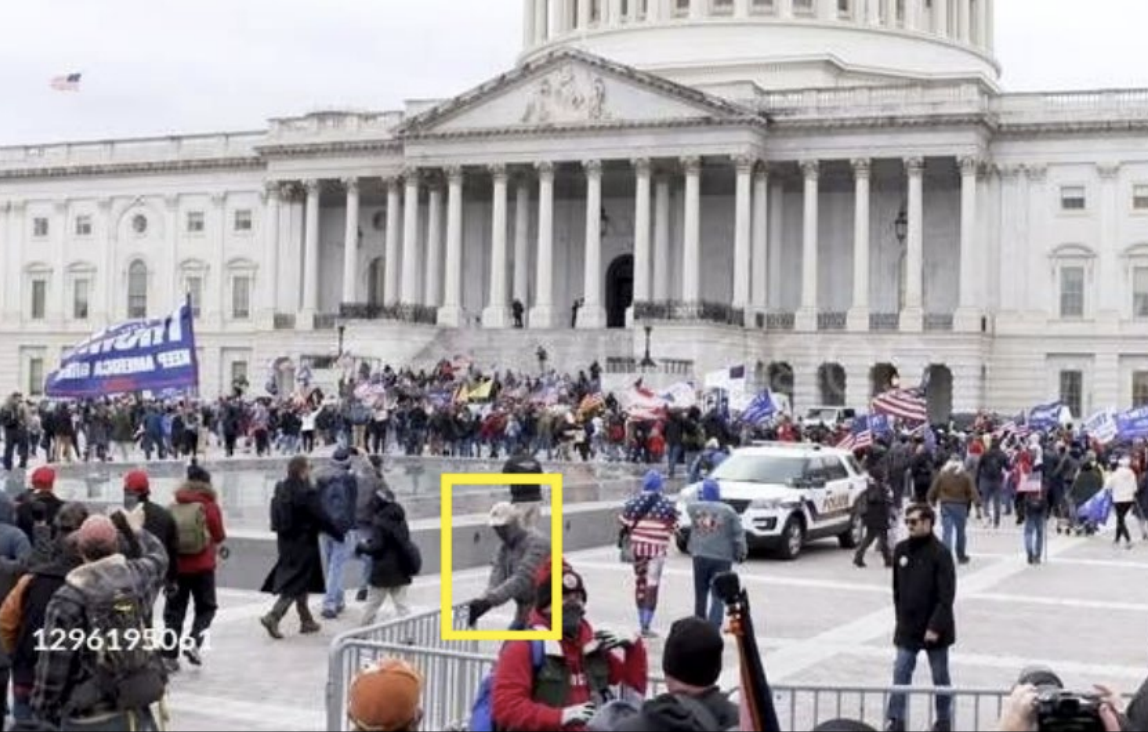
The federal criminal complaint and subsequent ten-count indictment charge Dykes with the standard litany of January 6th crimes - parading or picketing, disorderly conduct, civil disorder, disruptive conduct in a restricted building - in addition to more serious allegations like engaging in physical violence and assaulting an officer. Photos show a man the complaint identifies as Dykes holding a police riot shield allegedly stolen from a DC Metropolitan Police officer by force. With that shield in hand, every subsequent charge is enhanced with the modifier "with a dangerous weapon."
The FBI Joint Terrorism Task Force officer who authored the criminal complaint in Dykes' Capitol riot case wrote that he was able to confirm the tip submitted by a confidential human source because he had existing personal knowledge of Tyler Dykes. That same JTTF officer had interviewed Dykes back in January 2019 "regarding his potential ties to domestic extremist groups." This is mentioned only in passing, without elaborating on what prompted the Joint Terrorism Task Force to interview an active duty Marine about his ties to domestic extremism. When Dykes' father was asked at the bond hearing in April why his son was discharged from the Marines in 2022, he said he did not know.
His torch case is fully resolved, but Tyler Dykes does not yet have a trial date on these new federal charges. He is awaiting trial at his parents' home in Bluffton, SC with a curfew, location monitoring, and a court order to have no contact with members of the Southern Sons Active Club "or other related groups."
Azzmador's Bully Squad
Wil Zachary Smith and William "Billy" Williams came to Charlottesville in 2017 as body guards for neo-Nazi micro-celebrity Robert "Azzmador" Ray. In a private chat before the event, Ray was looking forward to "hogging all the attention and gassing all the k***es" with his "bully squad." Two members of that bully squad, Smith and Williams, returned to Virginia from Texas this year in custody. Both men have pled guilty to the charge of burning an object with the intent to intimidate.
The first round of indictments in the torch march cases was handed down by an Albemarle County grand jury in February 2023. Four of those five indictments were sealed, only to be unsealed once the defendant had been taken into custody by local authorities and extradited back to Albemarle County. But the indictment against Wil Zachary Smith was never sealed because on the day the grand jury returned his indictment for carrying a torch, he was already standing in shackles in front of Judge Higgins in Albemarle County Circuit Court on another, more serious, charge related to that night in August 2017. After more than four years as a fugitive on a June 2018 indictment, Smith was arrested in January 2023 on a felony charge of malicious release of gas. As Robert Ray had both predicted and instructed, he had indeed 'gassed' the counter protesters, releasing a stream of pepper spray into the faces of the people trapped at the base of the statue.

After five months in pre-trial detention, Smith entered into a plea agreement, which remains sealed. The malicious release of gas charge, which could have carried a sentence of up to 20 years, was dropped and he pled guilty to the lesser felony of burning an object with intent to intimidate. Smith has not been sentenced, but was released from custody until his sentencing hearing which has not yet been scheduled. He is currently set for a term hearing in April 2024.
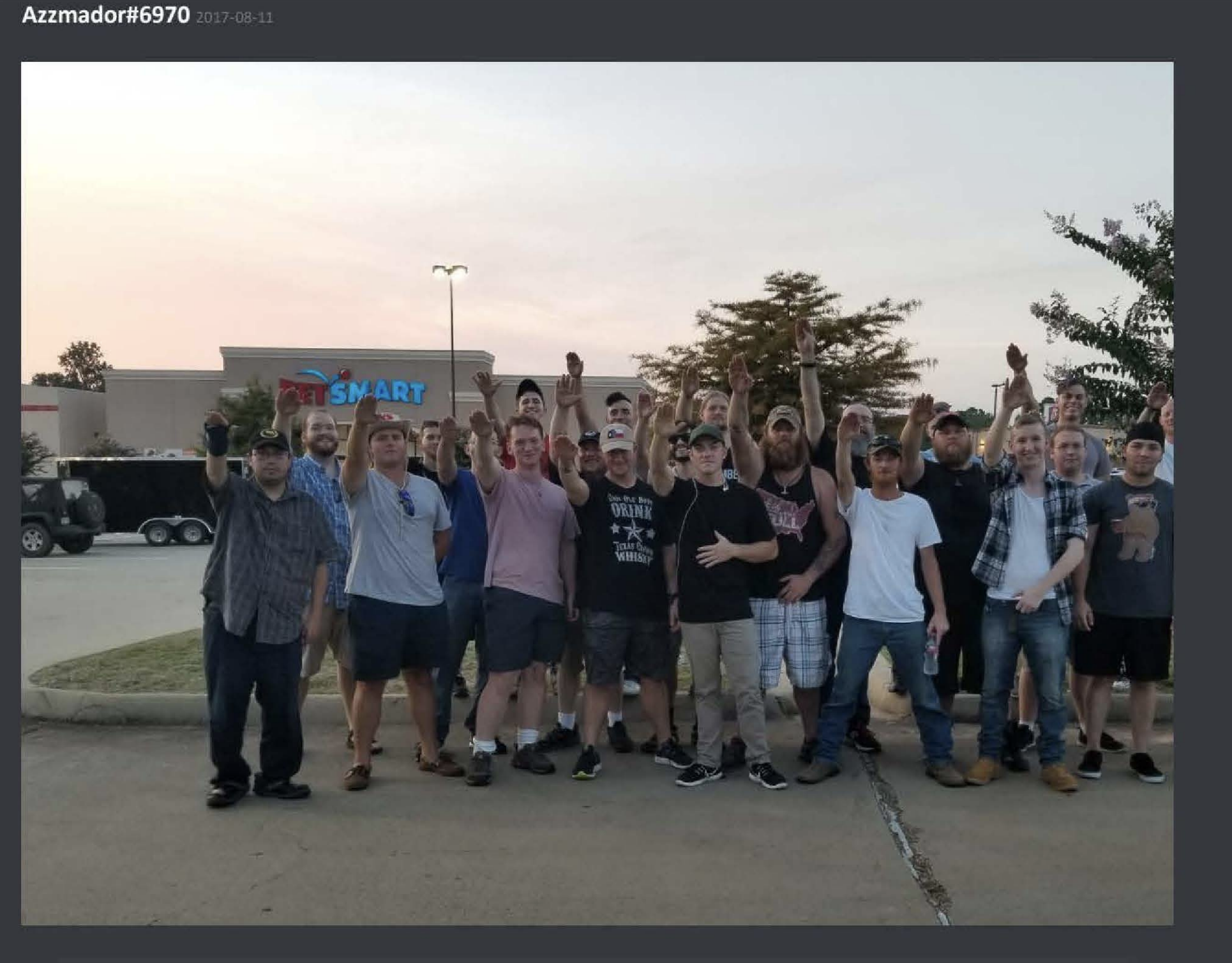
Billy Williams was arrested in Texas in March and held for nearly a month before he was extradited and booked into the Albemarle Charlottesville Regional Jail on April 27. When he appeared before Judge Worrell on May 5, he'd just missed the birth of his seventh child with his common law wife. Williams was denied bond twice that month and held in custody. During both hearings, his attorney Ryan Rakness insisted that his client had only ever met Robert Ray on two occasions - once at Unite the Right itself and once at "a dinner," though it was not clear whether this dinner was before or after the 2017 rally. This claim, while made emphatically and repeatedly, is demonstrably false. Photos and video of multiple far-right rallies show Williams and Ray together throughout the summer of 2017. Discord chats produced in discovery in a civil suit show Ray referring to Williams as his hand-picked head of security and one of his designated "Stormleaders" for the Unite the Right weekend.

While merely knowing Robert Ray, who remains a fugitive on a malicious release of gas charge for pepper spraying the counter protesters at the statue and is wanted on a federal bench warrant for civil contempt, would likely not be grounds to hold Williams without bond, Judge Worrell was concerned that the defense had misled the court about the nature and extent of Williams' relationship with a fugitive, particularly after the Commonwealth proffered that federal authorities shared with the prosecutor's office that there is evidence Ray had been staying with Williams while evading arrest. Robert Ray remains wanted by both Albemarle County and the US Marshals.
As Williams waited in custody for a trial set for mid-September, co-defendant Tyler Dykes received the first sentence handed down in these cases. Perhaps it was seeing that Dykes, who was arrested at around the same time as Williams, would be going home mere weeks after entering his guilty plea that changed Williams' mind about going to trial. If his sentence matched Dykes' (a 6 month active sentence, with credit for good behavior and time served pre-extradition), he would be home with his seven children before his trial was even scheduled to begin.
On July 12, Williams pled guilty to the charge, despite his attorney's apparent opposition to the plan. His attorney Ryan Rakness, in a move that could have jeopardized the plea agreement, told the court that in his "personal opinion, justice would've been served by taking this case to trial." It was clarified on the record that the terms of Williams' plea agreement do not allow for him to enter an Alford plea (in which a defendant does not admit guilt but concedes there is enough evidence that he would likely be found guilty at trial) and Williams himself accepted responsibility for the charged conduct.
His sentence, 4 years with all but 6 months suspended, meant he was home by the end of the month.
With the first three cases cleared off the docket through plea agreements, the Commonwealth's Attorney's office has three convictions on the books under this seldom-used statute. But a guilty plea from a defendant calculating the potential risk of a five year sentence against the offer of being home in mere months is a much lower bar to clear than convincing a jury to convict. The true test of the strength of these cases will come when the first torch marcher goes to trial in December.
Read about the first two cases expected to come before a jury in the next installment in the series on Monday, available online or right to your inbox if you're subscribed to The Devil's Advocates.
